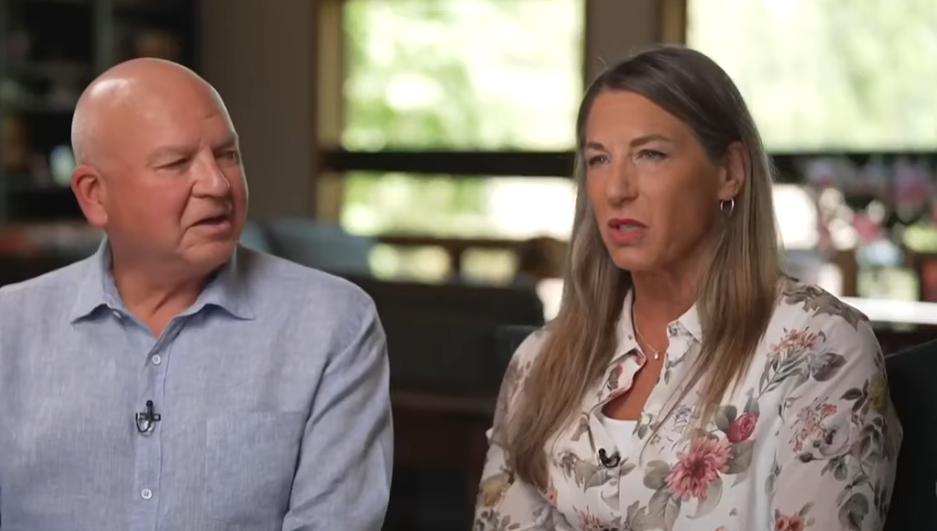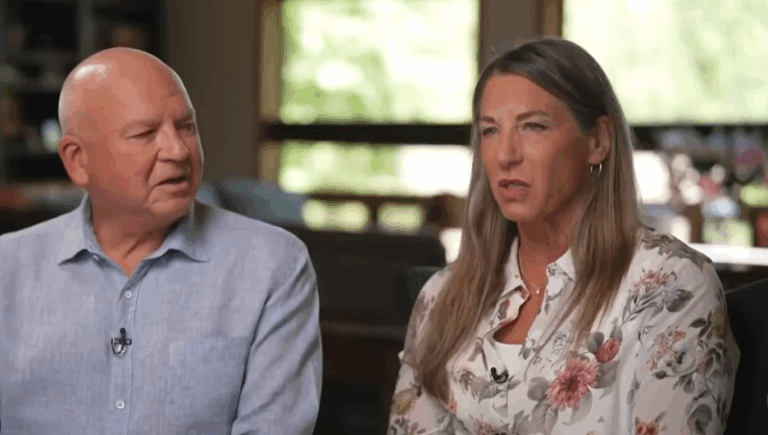Beyond law enforcement reports, the investigation into the tragic shooting that killed two seasoned Idaho firefighters has taken a harsh, emotional turn toward the role of the alleged shooter’s parents. Twenty-year-old Wess Roley, a former tree care worker and future firefighter, shocked his community by allegedly starting a brush fire and using a shotgun to ambush the responders. This extremely sad incident not only caused sadness but also raised concerns about how his upbringing might have influenced such a terrible result.
The public’s focus has dramatically changed in recent days to focus on his mother, Heather Lynn Kuuipo Cuchiara, and her ex-husband, Jason Roley. According to the records, Heather requested an order of protection against Jason in addition to filing for divorce in 2015, claiming that Jason had been abusive and that the environment was unsafe. These court records presented a troubling image of Wess’s early years spent in a broken home, which most likely contributed to unresolved trauma. Witnessing such parental conflict can be especially harmful to a child, leaving emotional scars that are rarely filled without targeted care.
A more intricate story was revealed by looking at their family’s digital footprint. An image of Heather and her current spouse, Tony Cuchiara, wearing red “Make America Great Again” hats while posing at the White House went viral on the internet. Although Snopes and other fact-checkers were unable to confirm the image’s provenance, the tattoo on Heather’s arm was consistent with other public images, suggesting that it was most likely real. Whether accurate or not, this picture has become a symbol, supporting claims that Roley’s decline was influenced by ideologies.
Profile Table: Wess Roley and Parents
| Name | Wess Roley |
|---|---|
| Date of Birth | 2005 (Age 20 at time of incident) |
| Place of Birth | California, USA |
| Mother | Heather Lynn Kuuipo Cuchiara |
| Father | Jason Roley |
| Stepfather | Tony Cuchiara |
| Education | GED; previously attended high school in AZ |
| Profession | Tree service laborer; aspiring fireman |
| Known For | Suspect in Idaho firefighter shooting |
| Incident Date | June 29, 2025 |
| Death | Died by suicide at the crime scene |
| Link for Reference | CNN Report |

It has become more evident through strategic documentation that Roley was living mainly alone. Dale Roley, his grandfather, told CNN that the young man had been living in his car and hadn’t spoken to anyone for weeks because his phone had been lost. Although some accounts indicated that he had close family ties, Dale’s hesitancy regarding Wess’s actions points to a concerning lack of engagement in his day-to-day activities. His increasingly erratic behavior was probably influenced by that emotional and physical distance.
The presence of involved, emotionally available parents can be especially helpful for behavioral issues in their early stages. Former classmates in Arizona remember Roley as a child, describing his ambivalent personality as humorous and gregarious at times, but also easily agitated and verbally combative. Although these behavioral swings are normal for teenagers, when paired with trauma, neglect, or a lack of direction, they frequently indicate more serious psychological issues. Without constant assistance, these problems may grow subtly until they violently blow up.
Connecting the dots is made simpler by utilizing social media activity, court documents, and public interviews. Wess was armed. He knew how to survive. He had goals. Crucially, he was lacking in structure. According to his grandfather, his attempt to become a firefighter was especially ironic considering the nature of his offense. Now, that irony serves as a somber metaphor for the gap between his potential and his eventual destiny.
The narrative is remarkably similar to other mass shootings in the United States: young men who are frequently alone, have unresolved psychological pain, and have easy access to firearms. The selection of victims is what makes this incident so startling. Firefighters are symbols of safety by profession and by nature. They dash into peril. They give freely to their communities. A particularly upsetting betrayal of civic trust is to be the target of such intentional violence from someone who once wished to join their ranks.
Analyzing this story makes it impossible to avoid comparisons to other well-known family cases. For instance, following years of alleged abuse, the Menendez brothers killed their parents in the 1990s. Even though their story took place in a very different setting, the public’s response is similar—questions about trauma, parenting, control, and ignored pleas for assistance. It is painfully evident in both situations that generational patterns of dysfunction and silence seldom go away on their own. Either they are addressed, or they collapse.
Mental health programs around the nation have been attempting to identify these at-risk youth earlier through strategic partnerships. However, these programs’ efficacy is still very low unless they are bolstered by family support. The main topic of discussion in Roley’s case is the absence of parental involvement, particularly from his father Jason, who acknowledged that he had not seen his son in years.
Remarkably, neither Heather nor Tony Cuchiara have made a direct statement since the incident, despite the social media frenzy. Almost immediately, their digital presence and accounts were removed. It makes sense. Public pressure can be debilitating. But questions arise in this quiet. Was there anything more that could have been done? Was there someone in Wess’s life who could have prevented the gradual decline?
Families all throughout the country have struggled with the fallout from gun violence during the last ten years. This case is unique not only because of the heinousness of the act but also because of the suspect’s past. He was a young man with skill, ambition, and a support network that had disintegrated long before the gun was pulled; he was not just a nameless face.
The development of a more comprehensive framework for recognizing emotional instability will be crucial in the upcoming years. In addition to changing gun laws, this entails bolstering family counseling programs to give parents the resources they need to foster resilience rather than sow doubt or anxiety. There are innumerable Roleys on the edge, waiting for direction, a mentor, or just someone to ask, “Are you okay?” for every Roley that makes the news.


